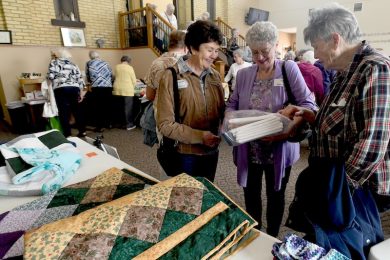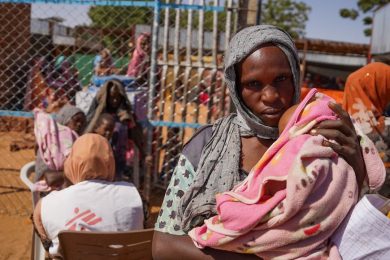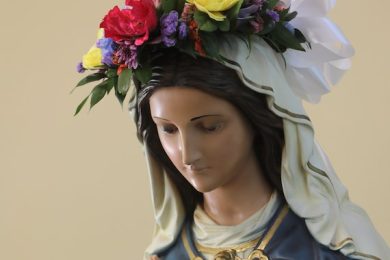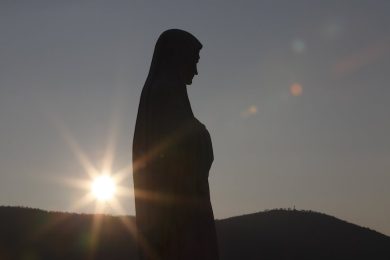By Xavière Missionary Sister Natalie Becquart | Catholic News Service
Recently, the synod coordinator for a U.S. diocese told me: “With our diocesan synodal team, we have organized listening sessions in all our parishes according to the methodology described in the ‘vademecum.’ We also did it in many other places, like Catholic schools, shelters for migrants and refugees, groups of single mothers, etc. It is really transforming the people and the diocese. Now we feel that we have to continue this process and focus on discernment.”
In many reports, we have begun to receive at the General Secretariat of the Synod of Bishops, we can read these kind of comments coming from a U.S. parish: “Participants were grateful for the opportunity to share their joys, hopes, concerns and recommendations in response to building a better church. The sessions were spirit-filled, and conversations were animated, reflective, energetic and oftentimes were characterized by strong emotions.”
It is striking to hear from so many parts of the world where people had the opportunity to take part in a true synodal consultation like this, allowing them to pray together, to listen to each other, to dialogue on the fundamental question of the synod and the 10 themes, that they experience joy.

Many express gratitude. “It is the first time the Church is asking (for) my voice and it makes me realize that we are the Church, not only the priests and the bishops.”
Many also witness that experiencing this type of mutual listening, they understand that the change in style of being Church, even before being a doctrinal or structural matter, is a personal conversion to which each and every baptized person is called.
The synod is already bearing fruits and we can contemplate how the Holy Spirit is leading the Church to a synodal conversion at the grassroots in local churches embracing synodality with creativity.
Of course, it is not an easy path, as it is a call for change that naturally gives rise to fears and resistance. Finding ways to truly walk together as the people of God with and through our differences of vocations, positions, ages and gender is a challenge. The Catholic Church is re-learning synodality that was the style of the early Church as a fruit of the Second Vatican Council. But it is an open path, not written in advance.
The 2021-2023 synodal path is a learning process, a paschal journey for a “new birth,” a missionary renewal to enter into a new vision of the Church that is a discerning Church, a relational Church, an inclusive Church.
In a nutshell, it’s a Church on the move, understanding herself as a missionary communion reflecting the mystery of the Trinity — the mystery of the Trinity in history on the road of humanity today.
“Therefore, making a Synod on Synodality does not mean doing it on a theme like so many others, but on the deeper identity of the Church as communion and mission that becomes concrete, historically incisive when it is participated by all. The Church is such, in fact, only when it is carried on its shoulders by all and shared in its heart by all, at the service of its brothers and sisters, especially beginning with the last, the discarded and the existential and spiritual peripheries of our time.” — Msgr. Piero Coda, member of the Theological Commission of the Synod 2021-2023.
As many theologians expressed it after the opening of the synod in October 2021, we are living “the most important ecclesial event after the Second Vatican Council.” In fact, this is the first time in 2,000 years of Church history that a synod is called to involve the entire people of God as written in the first sentence of the preparatory document: “The Church of God is convoked in Synod.” So everyone is called to participate, to give his or her voice, especially the poor, those from the margins, the voiceless.
The diocesan phase of the synod is almost over, but the conversion to synodality has no end. Therefore, we are invited to continue this crucial journey for the future of the church and the future of a world longing for peace, reconciliation and unity. All the baptized have a role to play for promoting and implementing synodality at all levels of the Church.
And if we believe that “synodality is the way of being the Church today according to the will of God, in a dynamic of discerning and listening together to the voice of the Holy Spirit,” as stated by Pope Francis, we can be confident that we will receive the grace to answer this call of God to become a synodal Church.
Sister Becquart is the undersecretary of the Synod of Bishops at the Vatican.






















